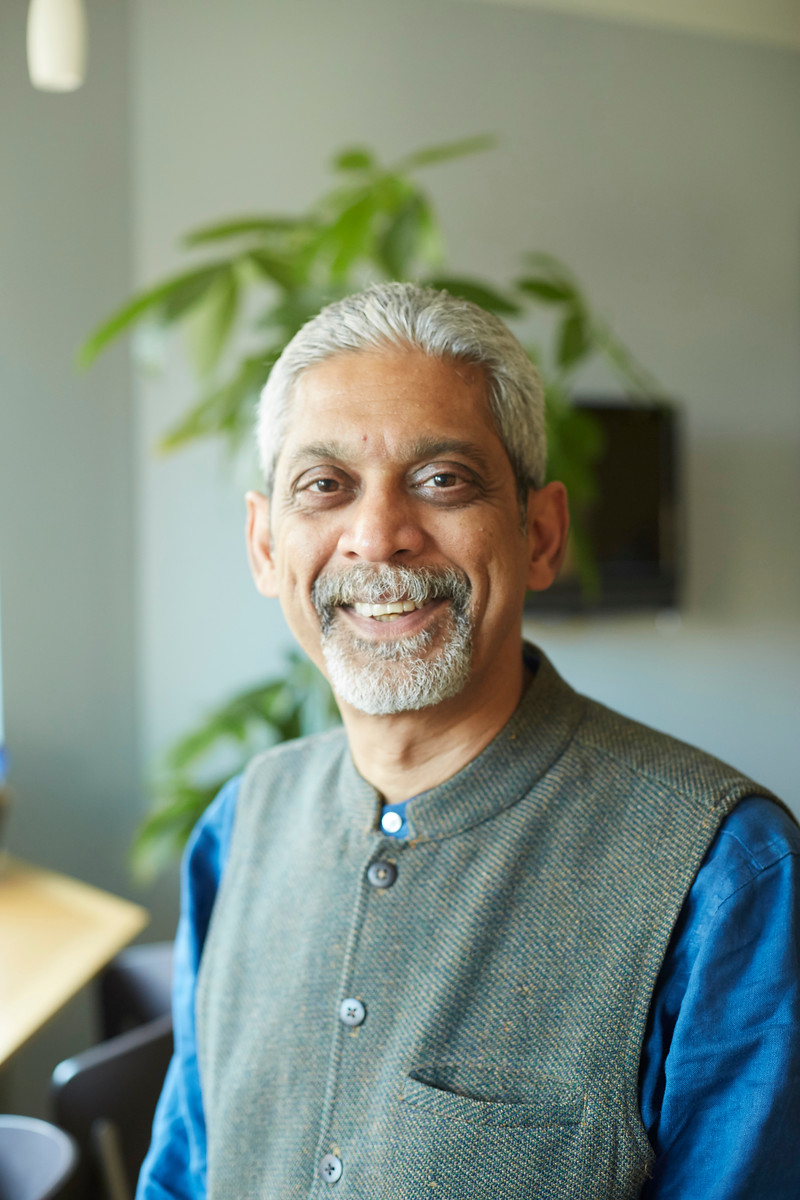
Simplify and Scale: Vikram Patel Reimagines Mental Health Care
In a high-definition video module, a counselor named Donna walks down a street while describing methods of approaching patients who are experiencing mental health issues.
“[It] is a very sensitive issue, so it’s natural to feel a little uncomfortable asking about this,” she says. She reminds me that “it can save lives when we intervene or provide some guidance to people in need.” Calming music plays in the background and text pops up on the screen as Donna elaborates on how to speak in a warm tone. She provides examples of indirect questions like “How are things at home?” and “What is your relationship with your partner like?”
In just a few videos, Donna has taught me how to demonstrate acceptance, listen effectively, identify signs of suicide, and put patients in contact with the right resources. This is Module 6 of EMPOWER, a curriculum developed by the Mental Health for All Lab at Harvard Medical School.
The curriculum, which consists of a series of videos accompanied by short quizzes, is aimed at community health workers but is designed to give anyone working in areas without sufficient mental health resources the skills to identify and alleviate mental health issues in their community. EMPOWER has distilled psychological interventions into bite-sized pieces of digitized lessons that are simple to learn.
“This is not about a replacement or alternative to specialized care, it’s about expanding the footprint of the mental health care system deep into the community,” says founder Vikram H. Patel, a professor in the Department of Global Health and Social Medicine at HMS.
Patel speaks quickly, less interested in explaining the details of the project than tracing its larger mission; he is someone who is not troubled by the minutiae that can overwhelm a big undertaking, but rather looks ahead to what is possible.
Trained as a clinical psychiatrist, Patel first identified a vast shortage of mental health clinicians while doing research in Zimbabwe.
“I discovered that everything I had ever learned was impossible to apply because there were no mental health professionals,” he says. “That set me on the journey to actually interrogate how one could engage and deliver mental health care in these extremely different contexts.”
Compared to traditional education, EMPOWER serves the cake without the icing, giving healthcare workers the skills to start making a difference quickly.
“The old-fashioned model is how we teach you guys at Harvard: come and spend a whole lot of time in-person, with the expert, spend huge amounts of money,” Patel says. “This is simply not how community health worker training can go forward.”
EMPOWER’s strength is its simplicity — it is designed to be accessible to anyone from frontline workers to nurses to ordinary people. The team has finished implementing trials in Texas and India, and it plans to incorporate feedback, add translations, create culture-specific scenarios, and design a competency assessment.
Initial findings from the trials show that community health care workers are already benefiting from the program. “People come to them, and people trust them,” says Juliana L. Restivo, a coordinator at the Mental Health for All Lab. “By being trained with this, they’re actually equipped to know how to respond.”
EMPOWER has gained traction within the global mental health field, now boasting partners like the CEO of the American Psychological Association on its advisory panel as well as cross-disciplinary researchers at Harvard and other universities.
Restivo said these partnerships set EMPOWER apart and “make sure that this work isn’t just another research project.”
Moving forward, Patel says “the biggest challenges are actually systemic, the financing.” But he is confident that funding will pour in “the moment that effective models are shown.”
So far, EMPOWER’s first modules have focused on basic skills, depression management, and early childhood intervention, with a more general curriculum in the works for laymen like me.
I watch Donna as she talks to patients in her office, nodding along to the other actors’ words, clipboard in hand. She’s putting the strategies I learned into practice. And although I’m watching a highly contrived scene play out and answering multiple choice questions along the way, I can see myself using the lessons from these modules in my interactions with friends.
This is Patel’s goal, that “anyone in the community can learn to support anyone else in the community,” he says. “There’s so much you can do in a single encounter.”
— Magazine writer Dina R. Zeldin can be reached at dina.zeldin@thecrimson.com.


